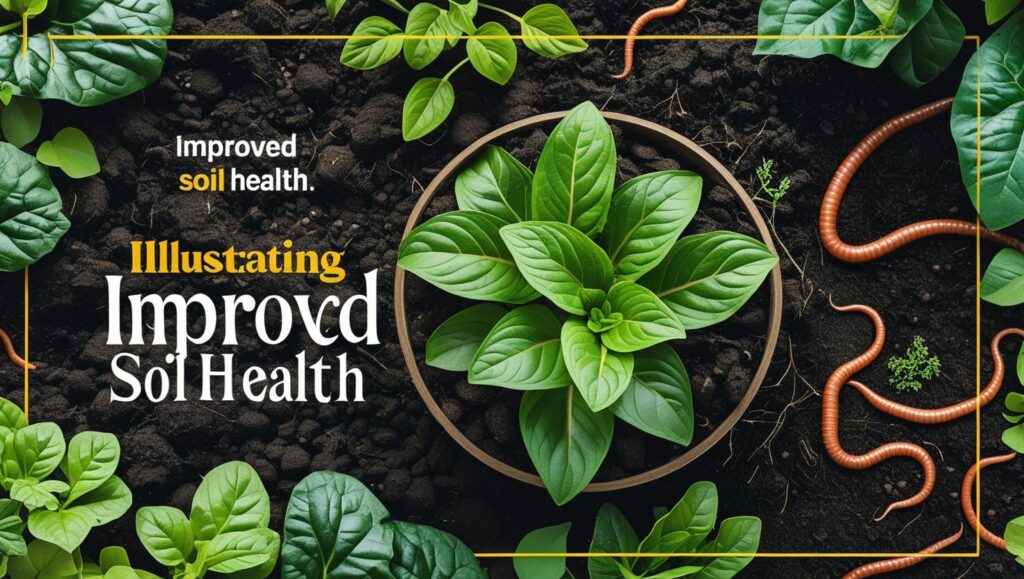Organic compost is often referred to as “black gold” in agriculture—and for good reason. It’s a powerful, natural solution to many soil, plant, and environmental challenges. Whether you’re a home gardener or a commercial farmer, understanding how organic compost is beneficial can help you build healthier ecosystems while also saving money and reducing waste.
1. Improves Soil Health

One of the primary ways organic compost is beneficial is through its ability to enhance soil structure and fertility. Compost naturally improves soil texture, making compacted clay soils more friable and allowing sandy soils to better retain moisture. This balanced structure enables roots to grow deeper and stronger, which leads to healthier plants.
Moreover, compost increases the soil’s capacity to hold essential nutrients and water. It contains vital plant nutrients such as nitrogen, phosphorus, potassium, and micronutrients like magnesium, calcium, and iron. These are slowly released over time, ensuring a consistent supply of nourishment for plants without the risk of nutrient burn often associated with synthetic fertilizers.
The addition of compost also promotes aeration and drainage, which are key to preventing root rot and other water-related diseases. As a result, your soil becomes a thriving environment for beneficial microbes and earthworms—natural allies in maintaining soil vitality.
2. Boosts Plant Growth
Plants grown in compost-enriched soil are often stronger, healthier, and more productive. The slow and steady release of nutrients supports plant development at every stage—from germination to flowering and fruiting. Compost fosters microbial activity in the soil, which in turn helps plants absorb nutrients more effectively.
Additionally, these beneficial microbes can suppress plant diseases by outcompeting harmful pathogens. With stronger root systems and improved nutrient uptake, your plants are better equipped to resist pests and tolerate environmental stressors like drought or extreme heat.
Whether you’re growing vegetables, flowers, fruits, or ornamental plants, using organic compost can lead to lusher growth, brighter blooms, and better yields.
3. Reduces Waste
Composting is an excellent way to manage organic waste sustainably. Food scraps, dried leaves, grass clippings, and agricultural residue can all be converted into valuable compost instead of ending up in landfills.
This waste diversion plays a significant role in reducing methane emissions—a potent greenhouse gas produced when organic materials decompose anaerobically in landfills. When you compost, you’re actively reducing your carbon footprint and contributing to a more circular and sustainable system.
At both household and commercial levels, composting supports responsible resource management and promotes an eco-friendly lifestyle.
4. Environmentally Friendly
Another reason organic compost is beneficial is that it’s 100% natural and chemical-free. Synthetic fertilizers can leach into water sources, causing pollution and harming aquatic life. In contrast, compost enriches the soil without introducing toxins into the environment.
By improving soil health and increasing organic matter content, compost also enhances carbon sequestration—capturing atmospheric carbon and storing it in the soil. This helps mitigate the effects of climate change while restoring degraded land.
In regions suffering from soil erosion, salinity, or desertification, compost application can play a critical role in land rehabilitation and ecological balance.
5. Cost-Effective and Sustainable
From a financial perspective, organic compost is beneficial because it significantly reduces the need for chemical fertilizers, pesticides, and soil amendments. These inputs can be costly over time and often lead to diminishing soil quality.
Compost, on the other hand, builds soil health year after year, leading to better long-term productivity and reduced input costs. Farmers and gardeners can even produce their own compost at little to no expense, making it an accessible and sustainable option for all.
Conclusion
To sum up, organic compost is beneficial on multiple levels. It nurtures the soil, enhances plant health, reduces organic waste, protects the environment, and saves money. In a world facing soil degradation, pollution, and climate challenges, composting offers a simple yet powerful solution.
Adopting compost in your farming or gardening routine is more than just good practice—it’s a commitment to sustainability, productivity, and ecological harmony. Whether you’re growing food or flowers, switching to organic compost is a meaningful step toward a greener future.
To know more about this contact to our team
